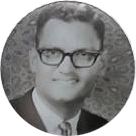





A. M. Omran, Y. R.
Soliman and A.B. Zayed
( 2014). Soil Pedology And Formation Regime Of The North-East Desert Hinterland Of El- Fayoum GovernorateMinufiya J. Agric. Res. Vol.39 No. 3(2):1163-1183
Abstract: The current investigation was carried out to identify and study the physiographic units of the desert hinterland north-east El-Fayoum Governorate using Landsat Thermatic Mapper (ETM 7). Soil characteristics, classification, deposition mode and sand mineralogy assemblage of the studied area were also performed. For these purposes, ten soil profiles were chosen representing the physiographic units. Site and soil profiles were morphologically described and samples were collected according to soil vertical variations. These samples were used for physical, chemical and mineralogical analysis. According to the interpretation of the Landsat Thermatic Mapper (ETM 7) using GIS, seven physiographic units were identified in the studied area. These units are the young alluvial terraces, denuded rock land, rough cobbly- stony hilly rock land, wadi bottom, river terraces, dissected plateau remnants rock land and not dissected to moderately dissected plateau remnants rock land. The characteristics of the representative soil profiles were used for classifying the studied soils according to USDA (2010) up to family level. These soils were affiliated to Entisols or Aridisols. The statistical size parameters of sand fraction indicated that soil materials were poorly sorted and mostly transported and deposited under water action. The deposition environment was fluvial (deltaic) and the hydro-dynamic conditions were rolling and suspension. Quartz is the predominant light mineral followed by feldspars and calcite and non-opaque minerals dominated heavy minerals of sand fraction (0.125-0.063 mm). The mineralogical assemblies of sand fraction in the studied soils and their ratios reveals that soils are recent or immature and of multi- origin and/ or multi depositional regimes.
Keywords: (GIS, physiographic units, Landsat Thermatic Mapper (ETM 7), light minerals, heavy minerals.)